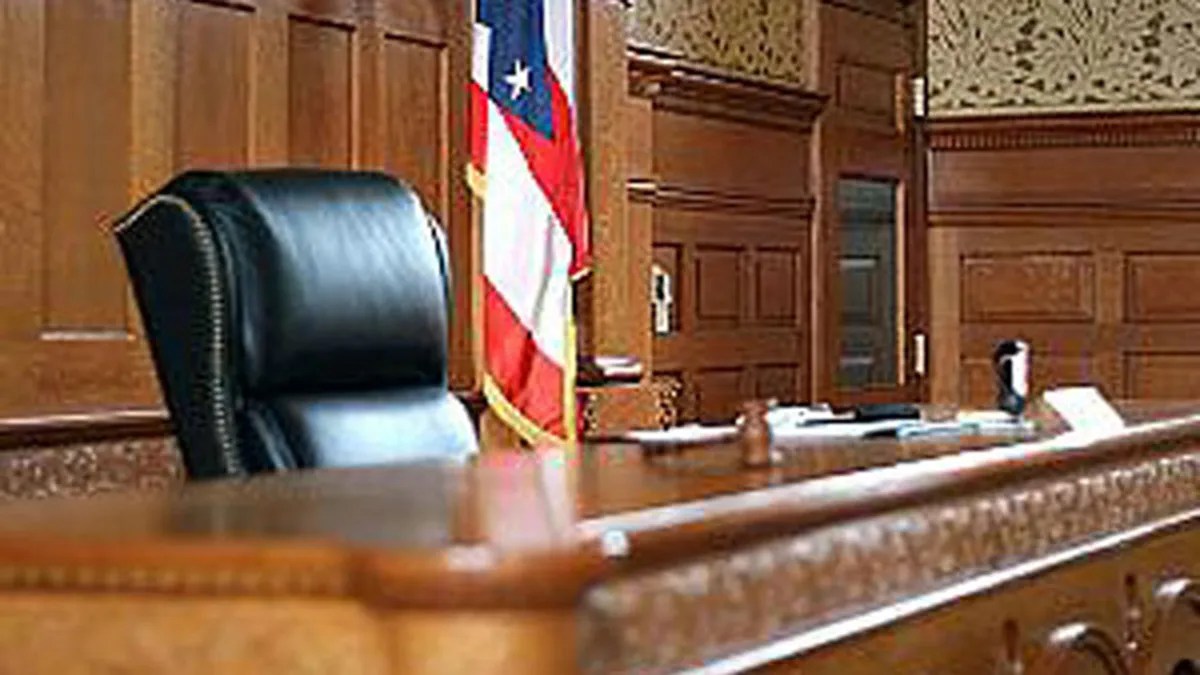Hey, did you hear the one about the 10-year-old African-American girl who was raped and left for dead in the Deep South? No? That’s because John Grisham’s 1988 best-seller “A Time to Kill” is a mortifying story about the loss of childhood innocence, race relations, murder and justice.
It isn’t funny.
Yet, the team behind Broadway’s flimsy adaptation of the Mississippi-set tale, now open at the Golden Theatre, has turned it into a comedy ... intentionally in some places, unintentionally in others.
Humor, in a play like this, should break the tension. But it shouldn’t be the through-line.
“A Time to Kill,” also the basis for a memorable film, begins as a horrifying act is perpetrated upon a young black girl carrying groceries to her family. When her father, Carl Lee (here, John Douglas Thompson, excellent) finds out about the rape, he guns down the scoundrels. To keep him off death row, cocky attorney Jake Brigance (Sebastian Arcelus) will have to prove Carl Lee was temporarily insane.
The rape, thankfully, transpires here off-stage. All we hear of the girl is her voice over a P.A.. -- “Daddy! Daddy! Dad-dyyyy!” -- as we see a montage of treetops imposed on wood panels. It’s a reasonable way to set up the story for a Broadway audience, many of whom may be familiar with Grisham’s work (this is his first novel to be adapted for the stage) and wondering how the author’s large-scale ideas might contract for the stage.
With a few notable exceptions, we spend most of the next two-and-a-half hours in a courtroom overseen by Omar Noose, the circuit judge for Ford County. Noose ("Not too crazy about his name," cracks Carl Lee) is played by the estimable actor-politican Fred Dalton Thompson, in his Broadway debut. Thompson, I’m sorry to report, was not in command of his dialogue, when you could hear it, during a recent press performance.
Local
Arcelus ("House of Cards"), as the good Southern boy who takes on Carl Lee’s case partly out of his own guilt over not preventing the crime, is lost here, almost as if he’s just blandly working a table reading. It’s a fault we suspect lies in the pithy script by Rupert Holmes: “Every verdict, someone is going to lose,” Ole Miss law student Ellen Roark, the ineffective Ashley Williams, explains to her colleague before the easily anticipated climax.
Williams (“How I Met Your Mother”) seems to be trying on different personalities as she repeatedly offers help to the reluctant defense lawyer. It doesn’t help that she’s saddled with dialogue like: “Jake, you've got to let me in on this. Black father killing two white men who raped his daughter ... it's the stuff my dreams are made of.” Her timing and execution were questionable throughout, and her chemistry with Arcelus barely registers.
As Rufus Buckley, the district attorney and Jake’s opposing counsel, stage vet Patrick Page (“Spider-Man,” “The Grinch”) brings needed adrenaline to the production; he’s hardly the venomous snake you may be expecting and that’s part of what makes his performance rise above the others.
Tom Skerritt, the “Picket Fences” star, has a one-note turn in his Broadway debut as disbarred alcoholic lawyer Lucien Wilbanks, on hand to show his one-time prodigy “the way.” “The way,” here, includes mugging over a glass of iced tea he spits out, dejected it wasn’t the liquor he was expecting.
Tony nominee Tonya Pinkins (“Caroline, or Change”) is on hand as Gwen, Carl Lee’s wife, displaying righteous indignation and watching out for her husband’s interests in her few scenes.
Jake’s wife and daughter have been mostly written out of the story; so, too, has a pivotal element of the book that had Ellen Roark’s character attacked by the Ku Klux Klan. Indeed, with this script, much of the action has been wrung right out of the story.
Playwright Holmes, who gave us the much superior “The Mystery of Edwin Drood,” employs a tactic reminiscent of that earlier whodunit in the second act, as the turntable stage rotates (the sleek set is by James Noone) and we, the audience, become the jury, hearing paeans from Arcelus and Page, and receiving juror instructions from Thompson. I wanted at one point to stand up and vote for Dick Datchery as the likely killer.
Fault for the muddled presentation lies as well with director Ethan McSweeny (Gore Vidal’s “The Best Man”), who has staged things so that whole chunks of dialogue are missed, and who has allowed the story to drift far afield from what its creator intended.
You’ll feel that acutely in the second act, as Ozzie (Chike Johnson), the sympathetic sheriff, tries to prevent a Klansman from detonating a bomb in front of Jake’s house. Johnson and the Klansman struggle as the sheriff tries to cuff the bad guy to the explosive, and it devolves into something like an Abbott & Costello routine.
True to the original narrative, Jake is attacked often by the Klan. We’re told early on -- though we don’t witness it in any way -- that the Klan is burning a cross in front of Jake’s office. We don’t miss it at all the next time supremacists use fire to make a point: Midway through the second act, a backdrop rises to reveal a multi-story flaming cross. It denotes the point in the story where Jake’s house is burned down, and seems lifted from a “Jesus Christ Superstar” revival.
The smoke barely dissipates before we’re rushed into a courtroom scene, where actors are forced to emote through a thick fog while the audience is left to ponder whether a 911 call is in order.
“A Time to Kill” contains language some theatergoers may find offensive. God-faring souls should be reminded that a potent religious symbol is fully cooked. That cross is one of the few things not half-baked in this production.
“A Time to Kill,” at the John Golden Theatre, 252 W. 45th St., for an open-ended run. Tickets: $69.50-$132. Call Telecharge at 212-239-6200.
Follow Robert Kahn on Twitter@RobertKahn



